Making the decision to go to law school requires a certain amount of discernment, but once the decision has been made, selecting the right school and degree program for you can be a daunting task. Should you choose an online program or attend classes in person? Is a Juris Doctor (JD) or a Master of Jurisprudence (MJ) a better fit for your career goals? Is the program you have your sights on going to give you the best quality for the cost? Will the outcomes touted by a program really measure up upon graduation?
There are many factors to consider, and as a prospective law school student, you may find yourself bombarded with information. How do you begin to sort through it all? Third-party organizations, like Law School Transparency, can help you sort through the noise and get a clearer picture of the programs and schools that are most forthcoming with program and employment information.
What is Law School Transparency?
Law School Transparency (LST) is a non-profit organization that focuses on consumer advocacy and public education around the legal profession. Founded in 2009, the mission of the organization is to “make entry to the legal profession more transparent, affordable and fair.”1 LST touts itself as one of the U.S.’s most trusted sources on legal education issues, both for information and analysis.
LST was founded by Vanderbilt University Law School students Kyle McEntee and Patrick J. Lynch.2 The goal was to improve both legal education and the profession at large by putting out post-graduation employment information. Their motivation came from their alma mater’s disclosure of job outcomes in 2008, which helped them and other classmates decide to attend that law school.3
What is Law School Transparency’s Role?
As it stands today, LST is focused on three pillars: reform, information and accountability. The organization challenges law schools, state bar associations and the American Bar Association (ABA), helping to develop policy ideas and the debate on them.4 Through its work within these pillars, LST notes that law schools today are the most transparent they have ever been, but due to economic pressure, schools have to continually evaluate the structure and purpose of their programs. LST wants to ensure that schools balance quality and cost and that they are operating to benefit students.
LST lists their achievements and the impact each has had on the legal world, noting cultural changes, information quality and availability, service to the underrepresented, accreditation activity, economic effects and more.5 One such impactful policy LST played a significant role in was ABA Standard 509, which went into effect in 2012. This standard prohibits false, misleading and incomplete consumer information, which includes exaggerated job rates and salary figures.6
The organization is also a resource for pre-law students, policy makers and journalists.7 Resources are both quantitative and qualitative and include reports that help those considering law school compare schools, an archive of interviews that shine light on the legal profession, collections of legal education data, resources for women in law and more.
Law School Transparency Reports for Those Considering Law School
LST offers comprehensive resources for potential law students, from those just starting to consider law school to those looking to compare their top school choices. Their tool to narrow and rank schools allows you to filter schools by the job type you want, your geographical preference, admission requirements, environmental factors and financial needs or limitations.8
If you are feeling stuck or overwhelmed by the vast array of choices you have when it comes to your education and career, LST can be a helpful resource to get your started. If you have more specific questions related to your law school search, you can reach out to the admissions team here at Tulane University to learn more about how you can enhance or start your career with an online legal degree from the nation’s 12th oldest law school.
Contact the Tulane Admissions Team
- Retrieved August 31, 2021 from lawschooltransparency.com
- Retrieved September 1, 2021 from abajournal.com/magazine/article/legal_rebels_2012_if_the_shoe_fits
- Retrieved September 1, 2021 from lawschooltransparency.com/blog/about/origins/
- Retrieved August 31, 2021 from lawschooltransparency.com/vision/
- Retrieved August 31, 2021 from lawschooltransparency.com/impact/#impact
- Retrieved August 31, 2021 from americanbar.org/content/dam/aba/publications/misc/legal_education/Standards/2016_2017_aba_standards_and_rules_of_procedure.authcheckdam.pdf
- Retrieved September 1, 2021 from lawschooltransparency.com/resources
- Retrieved September 1, 2021 from lstreports.com/wizard


